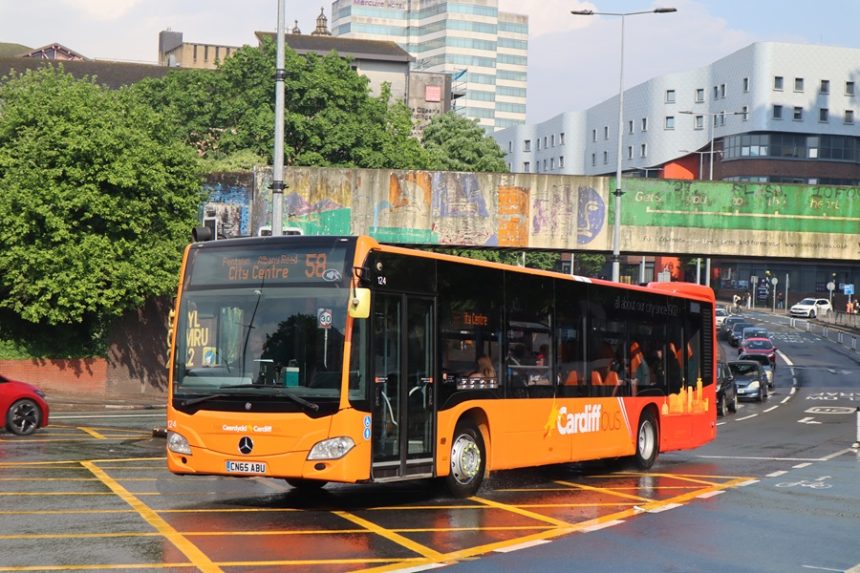The Senedd Climate Change, Environment and Infrastructure Committee has aired concerns that the Bus Services (Wales) Bill lacks detail in key areas and that “significant aspects” of its proposals will only become apparent after the Bill becomes law.
Those views are within a Stage 1 report as part of scrutiny of the Bill, which will permit the introduction of bus franchising across Wales. That is expected from 2027. Publication follows collection of oral evidence and 46 written submissions by the Committee.
In publishing their conclusions, members agree that the Bill is “an important and necessary step” towards improving bus service provision in Wales and recommend that the Senedd should support the general principles of what is within it.
However, as well as agreeing with many witnesses that detail is light in some areas of the Bill, the report notes how that “has clearly affected stakeholders’ ability to engage with the detail of the proposals and has caused concern, and, in some cases, misunderstanding of the Welsh Government’s intentions.”
The Confederation of Passenger Transport (CPT) Cymru and the Coach and Bus Association Cymru as bus industry representative bodies both earlier questioned the deliverability and affordability of franchising in Wales.
Responding to the Stage 1 report conclusions, CPT Cymru Director Aaron Hill underlines that operators “need a much greater level of detail on the funding and the procurement of the future bus network if the Bill is to be a success.”
He says that they welcome the Committee report’s conclusions, which echo many already raised by the bus industry, and adds that congestion must also be tackled if services are to improve.

A lack of provision for statutory guidance within the Bill is criticised by the Committee. While members accept the need for flexibility – and believe the right balance between that and providing more detail has been struck – they add that the scrutiny process has highlighted areas in which guidance is required to ensure full understanding.
Concerns of some witnesses that financial assumptions in the Bill lack robustness or realism are noted by the Committee. While not criticising the Welsh Government in that respect, a separate report on the Bill’s financial implications observes that assessing the accuracy of projected costs over franchising’s 30-year appraisal period is difficult.
Also highlighted in the main report is the ability of Transport for Wales (TfW) to deliver reregulation. TfW’s current capacity around bus services “is unproven at the scale necessary to deliver and subsequently manage franchising,” the Committee notes.
While a phased rollout across Wales will be beneficial to building expertise, concern exists that potential transfer of staff from local authorities (LAs) to TfW could weaken transport capacity at the former.

The matter of home-to-school, or learner, travel sitting outside scope of the Bill is also addressed. It will remain an LA function, and the Committee notes a worry that transfer of staff to TfW could weaken learner travel functions at councils.
Moreover, it adds a belief that omitting learner travel from the Bill “represents a missed opportunity to establish a clear statutory basis to design an integrated public transport system that meets the needs of all users, including children and young people.”
Despite that, the Committee accepts a comment by Cabinet Secretary for Transport and North Wales Ken Skates that the Bill must be deliverable. But it nonetheless concludes that an amendment is needed “to require a more prominent consideration of learner travel.”
On SME involvement in bus franchising in Wales, the report acknowledges those operators’ importance, particularly in rural areas and to learner travel. Anything that undermines SMEs’ participation “would be a significant issue,” the Committee says.
It is reassured by comments from both Mr Skates and TfW of that being addressed via contract design, but “given the [SME] sector’s importance to wider provision, we believe the Welsh Government and TfW must keep this matter under review.” A lack of clarity in the Bill on the role of existing municipal operators in Wales draws criticism, however.


























